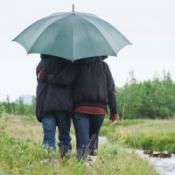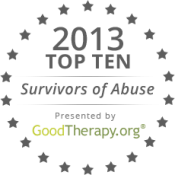 Sexual assault, a difficult subject for many people to talk or even think about, is an unfortunate reality for the approximately 250,000 people who are sexually assaulted in the United States each year.
Sexual assault, a difficult subject for many people to talk or even think about, is an unfortunate reality for the approximately 250,000 people who are sexually assaulted in the United States each year.
April is nationally recognized as Sexual Assault Awareness and Prevention Month, and April 7 is the designated Day of Action. These campaigns exist as a means to raise awareness of sexual assault in the U.S., so that people not only begin to think about sexual assault and its implications, but start doing something about it, as well.
You have the power to make a difference. Here are eight ways you can help raise sexual assault awareness and also work to prevent its occurrence in the future.
1. Educate Yourself about Sexual Assault
Sexual assault is any unwanted sexual contact that a person is coerced or forced to participate in against their will. According to the results from a Centers for Disease Control and Prevention (CDC) survey released in 2014, nearly one in five women has experienced rape or an attempted rape in her lifetime. Research also paints a grim picture for males. Studies show that one in six men experiences some form of unwanted or abusive sexual experience in his lifetime, as well.
Sexual assault impacts the lives of both men and women, and the resulting trauma often goes far beyond the event itself. People who experience sexual assault are more likely to experience posttraumatic stress, depression, anxiety, suicidal thoughts, drug and alcohol addictions, problems with intimate relationships, and difficulty at school and/or work.
You can help raise national awareness of sexual violence simply by educating yourself and your family. There are several national organizations that provide information and resources on sexual violence. Two of the leading organizations are:
- RAINN (Rape, Abuse, and Incest National Network) is the largest anti-sexual violence organization in the United States. RAINN operates the National Sexual Assault Hotline 24-7, which anonymously links callers to a counselor at a rape crisis center nearest them. RAINN also offers online support, resources, and information.
- The NSVRC (National Sexual Violence Resource Center) creates and shares resources to help prevent and respond to sexual violence in the United States and around the globe. They coordinate Sexual Assault Awareness Month (SAAM), operate an online resource library, sponsor national conferences and events, and help integrate research with community projects.
2. Volunteer
There are many ways you can personally get involved in the fight to raise awareness and prevent sexual violence in your local community.
You can volunteer at a crisis center, staff a hotline, participate in fundraising events, advocate for survivors, help raise awareness and improve safety measures on college campuses, or get creative and host your own educational or advocacy event.
3. Lobby Your Representatives
You can speak for those who do not have a voice or are not able to express it. Congress needs to hear from citizens who support legislation to improve the criminal justice system, provide support to survivors, and help prevent further violence. The RAINN Action Center has pre-written letters and tweets available to send to members of Congress asking them to support measures related to sexual assault prevention and support. You can use the RAINN hashtag #ActWithRAINN when posting about sexual violence advocacy measures this month.
4. Use Social Media
Connect with the cause and share it on social media to help increase awareness among those in your network. You can use the RAINN hashtag #ActWithRAINN to talk about the cause and connect with @RAINN01 to stay informed.
The NSVRC hosts a twitter discussion every Tuesday in April at 11 a.m. PDT. Follow the conversation or get involved through the hashtag #TweetAboutIt.
5. Learn How to Help Those Who Experience Sexual Assault
It can be difficult to know how to reach out to a loved one who has experienced sexual assault. Below are some tips to help if you are unsure of what to do:
- Lend a compassionate, nonjudgmental ear. Many people just want to be heard. They do not necessarily need advice or comments.
- Be patient and considerate. Don’t try to force your friend or loved one into seeking support or taking action if he or she is not yet ready for it.
- If the person plans to seek support or medical attention, offer to be there. As simple as it may seem, your presence alone can make a significant difference.
- If someone you know is sexually assaulted, your reaction can have an impact on his or her recovery from the trauma. Do not question what he or she was wearing or why he or she was not able to stop the assault. One of the most important things you can say to a sex abuse survivor is, “I believe you.”
6. Engage the Community
Consider reaching out to your local community to help with prevention efforts. You might talk to bar owners about the role their employees can play in prevention, seek support from faith-based or youth organizations, or encourage college faculty and staff to raise awareness and improve safety on campus.
7. Become an Advocate against Military Sexual Assault
Military sexual violence is one of the most overlooked forms of sexual assault. An estimated 19,000 service members become victims of military sexual assault each year, and at least half of those victims are men, with an estimated 38 military men being sexually assaulted every day. Unfortunately, many of these cases go unreported, as survivors rarely speak up.
You can also get involved and spread the word about prevention and support programs for military sexual violence survivors. RAINN operates a Department of Defense Safe Hotline and website for victims of military sexual assault to obtain crisis intervention, emotional support, and other related resources.
8. Donate
There are several nonprofit organizations against sexual violence that rely mostly on monetary donations from supporters to survive. Even if you cannot volunteer or take any other action, you can still help the cause by providing a donation to the organization of your choice. In addition to RAINN and NSVRC, there are several other nonprofit organizations working to prevent sexual violence and provide support, including:
- 1 in 6: an organization that helps men who have experienced sexual abuse.
- MCSR (Men Can Stop Rape): an organization that seeks to prevent male violence against women by redefining masculinity and male strength.
- NAESV (National Alliance to End Sexual Violence): an organization that helps educate the policy community about federal laws and legislation that prevent and work toward ending the cycle of sexual violence in the United States.
In addition to national organizations, there are a variety of support and prevention resources available on the local level as well. Get involved in your community. If you are unsure what projects exist near you, the NSVRC provides an online directory of local organizations and projects working to eliminate sexual violence.
We hope you will join us during Sexual Assault Awareness and Prevention Month in supporting several important organizations working toward a safer community for all. On April 7, the Day of Action, we urge you to pick out at least one item and help us create a ripple effect of positive change for those who are suffering, those who have been victimized, and for those who we hope never have to experience the trauma of sexual assault.
References:
- Help Someone You Care About. Rape, Abuse, and Incest National Network. (RAINN). Retrieved from: https://rainn.org/get-help/help-a-loved-one
- Kearl, H. (April 1, 2013). 10 Ways to Mark Sexual Assault Awareness Month. American Association of University Women. (AAUW). Retrieved from: http://www.aauw.org/2013/04/01/sexual-assault-awareness-3/
- Penn, N. (2014). Military Sexual Assault: Male Survivors Speak Out. com. Retrieved from: http://www.gq.com/long-form/male-military-rape
- Prevalence and Characteristics of Sexual Violence, Stalking, and Intimate Partner Violence Victimization — National Intimate Partner and Sexual Violence Survey, United States, 2011. (2014). Centers for Disease Control and Prevention. Retrieved from http://www.cdc.gov/mmwr/preview/mmwrhtml/ss6308a1.htm?s_cid=ss6308a1_e
- RAINN Action Center. Rape, Abuse, and Incest National Network. (RAINN). Retrieved from: https://rainn.org/public-policy/rainn-action-center
- Resource Directory. National Sexual Violence Resource Center (NSVRC). Retrieved from: http://www.nsvrc.org/organizations?tid=8&tid_1=All
- SAAM Day of Action (2015). Sexual Assault Awareness Month. National Sexual Violence Resource Center (NSVRC). Retrieved from http://www.nsvrc.org/saam/current-campaign/day-of-action
- The 1 in 6 Statistic. 1 in 6. Retrieved from: https://1in6.org/the-1-in-6-statistic/

The preceding article was solely written by the author named above. Any views and opinions expressed are not necessarily shared by GoodTherapy.org. Questions or concerns about the preceding article can be directed to the author or posted as a comment below.

 The Most Important Thing You Can Say to a Sex Abuse Survivor
The Most Important Thing You Can Say to a Sex Abuse Survivor Uncovering Abuses Past and Present, Finding Strength
Uncovering Abuses Past and Present, Finding Strength Best of 2013: GoodTherapy.org’s Top 10 Websites for Abuse Survivors
Best of 2013: GoodTherapy.org’s Top 10 Websites for Abuse Survivors

